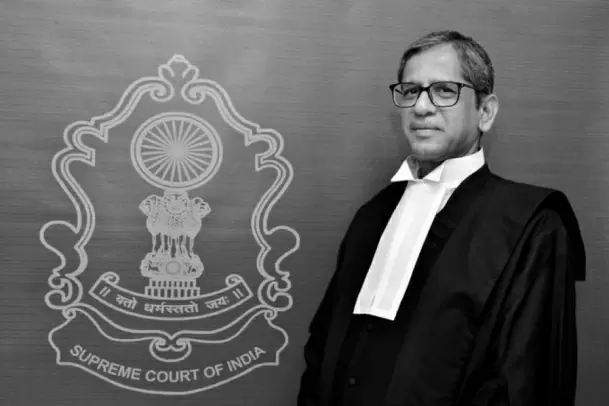Mahabharat, early attempt at mediation; British eroded resolution mechanism:CJI
New Delhi
17-July-2021

Photo:IANS
Chief Justice of India N.V. Ramana on Saturday said mediation, as a concept, is deeply embedded into the Indian ethos and being the cheapest and simplest option available to the public at large, it can be described as a tool of social justice in the Indian context.
He said Mahabharat, is an example of an early attempt at mediation as a conflict resolution tool, where Lord Krishna attempted to mediate the dispute between the Pandavas and Kauravas. It may be worthwhile to recall that the failure of mediation in Mahabharat led to disastrous consequences, he cited.
Chief Justice emphasized mediation, as a concept, is deeply embedded into the Indian ethos, long before the arrival of the British adversarial system in India. "The establishment of the British courts system, in 1775, marked the erosion of community-based indigenous dispute resolution mechanisms in India. The British judicial system has ultimately become the framework, with appropriate modifications, for the current judicial system in India", said Chief Justice.
He also took strong objection on the statistics regarding pendency and added that, it is often stated there are 45 million pending cases and it's said, because courts cannot handle it. "It is an uncharitable analysis. Cases filed yesterday get added to the list and thus is not a useful indicator to see how well a system is doing. Issue of judicial delays is a complex problem and just not in India," he opined.
The Chief Justice emphasized on the need for training sessions for mediators, as the role has evolved from a passive facilitator to a role involving advisory participation. "Pilots are needed to undergo training every year where they are given multiple scenarios on how to land. Mediators need to go through such training so that innovation can be brought on board," he added.
Justice Ramana insisted that a mediator must be 'neutrality' and 'aloofness' during the process. Citing various scenarios, he added, what happens when one party is better situated- economically, socially and politically, than the other? What is the duty of a mediator if the settlement reached is patently unjust to the weaker party? the Chief Justice said, it is time for India to enter mission mode to popularise mediation as cheaper and faster dispute resolution mechanism.-IANS
Watch This TWL Video
More Headlines
Erode East Bypoll: DMK Set for Big Win, Survey Shows 59.5% Support
Nil Tax Till Rs 12 Lakh: How Taxpayers Will Benefit From Tax Slab Changes In Budget 2025-26
Budget 2025: Income Tax Exemption Raised to ₹12 Lakh
Maoist Kothehonda Ravi Surrenders in Karnataka
Salman Khan’s Ex-Girlfriend Somy Ali Wants To Make A Film On Her Own Life
Erode East Bypoll: DMK Set for Big Win, Survey Shows 59.5% Support
Nil Tax Till Rs 12 Lakh: How Taxpayers Will Benefit From Tax Slab Changes In Budget 2025-26
Budget 2025: Income Tax Exemption Raised to ₹12 Lakh
Maoist Kothehonda Ravi Surrenders in Karnataka
Salman Khan’s Ex-Girlfriend Somy Ali Wants To Make A Film On Her Own Life










